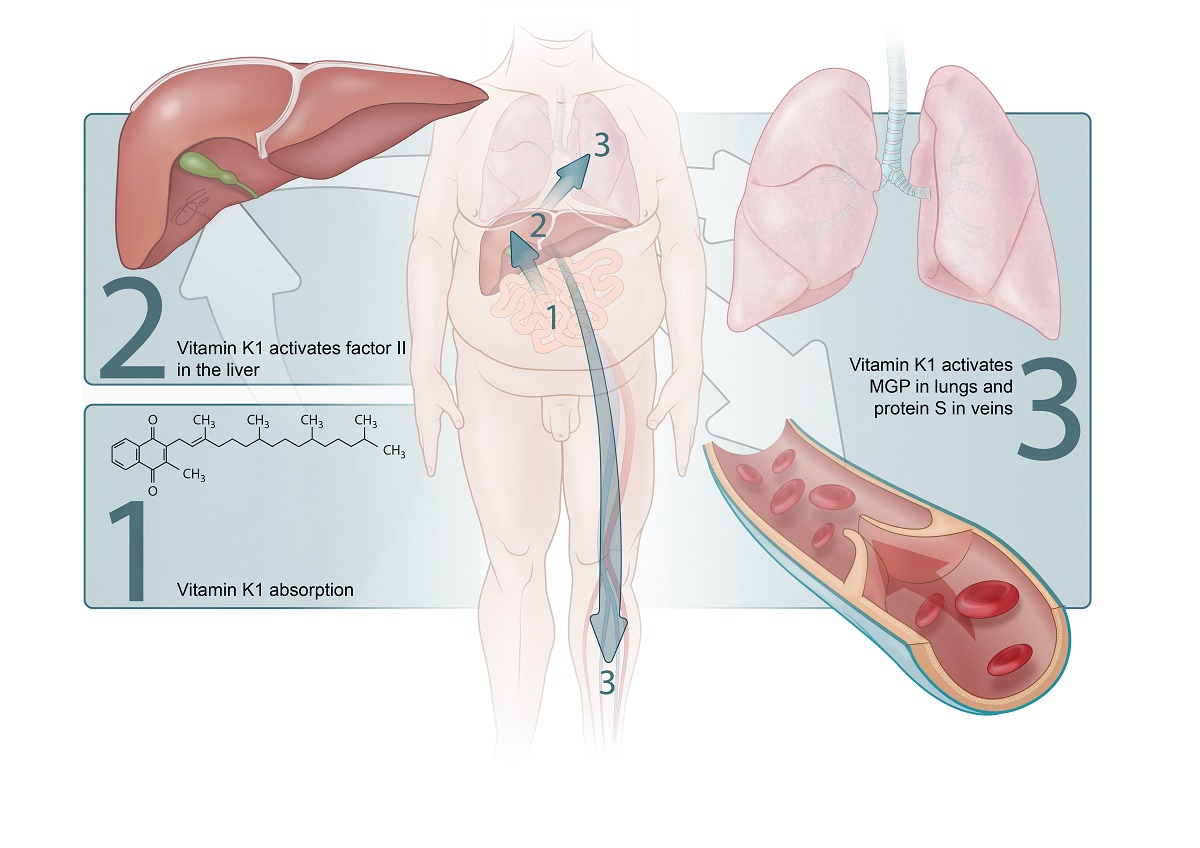Background: A significant proportion of SARS-CoV-2-infected patients develops respiratory failure. Thromboembolism is also prevalent in coronavirus disease 2019 (Covid-19). Vitamin K plays a role in coagulation and possibly also in lung diseases. We therefore hypothesized that vitamin K is implicated in Covid-19 pathogenesis. Methods: 134 Covid-19 patients and 184 controls were included. Inactive vitamin K-dependent matrix Gla protein (i.e.dp-ucMGP) and prothrombin (i.e. PIVKA-II) were measured, which are inversely related to respectively extrahepatic and hepatic vitamin K status. Desmosine was measured to quantify elastic fiber degradation. Lung involvement and arterial calcifications severity were assessed by computed tomography. Results Dp-ucMGP was elevated in Covid-19 patients compared to controls (P=0.001). Higher dp-ucMGP was found in Covid-19 patients with poor compared to better outcomes (P=0.002). PIVKA-II was normal in 81.8%, mildly elevated in 14.0% and moderately elevated in 4.1% of Covid-19 patients not using vitamin K antagonists. Dp-ucMGP in Covid-19 patients was correlated with desmosine (P<0.001), thoracic aortic calcification (P<0.001) but not with pneumonia severity. Conclusions: Extrahepatic vitamin K status was severely reduced in Covid-19 patients, as reflected by elevated inactive MGP, and related to poor outcome. Procoagulant prothrombin activity remained preserved in the majority of Covid-19 patients, which is compatible with the increased thrombogenicity that is frequently observed in severe Covid-19. Impaired MGP activation was linked to accelerated elastic fiber degradation and premorbid vascular calcifications. A trial should assess whether increasing MGP and protein S activity by vitamin K administration improves Covid-19 outcomes.

